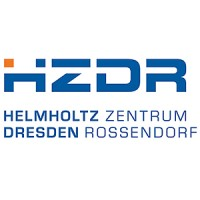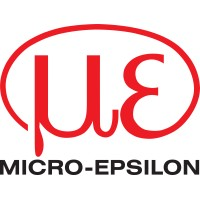EU-Project UPLIFT - Project 10: Upright immobilization and positioning
Helmholtz-Zentrum Dresden-Rossendorf (HZDR)
Datum: vor 1 Woche
Stadt: Dresden, Sachsen
Vertragsart: Ganztags

Helmholtz-Zentrum Dresden-Rossendorf e.V.
Project description
Proton therapy is an emerging radiation therapy technique to deliver highly-targeted doses with ionizing radiation beams to cancer patients with improved sparing of healthy surrounding tissues and reduced toxicity compared to conventional photon beam radiotherapy. While traditionally patients are irradiated in supine position, with the radiation beam being rotated around the patient to target the tumour volume from multiple angles, recent technological developments have made it possible to do the opposite. Instead of using bulky equipment to rotate the radiation beam around the patient, robotics has made it possible to rotate the patient in upright position relative to a stationary beam generated by compact equipment. This not only saves costs and space, but also improves system reliability and increases patient comfort.
Image guidance during treatment is crucial to assure highly accurate dose delivery. The recent development of a vertical computed tomography (CT) device enables the acquisition of anatomical images at the treatment isocentre prior to irradiation and during each treatment fraction. This allows for adaptive therapy, taking into account anatomical variations that occur during the course of treatment. Since the targeting accuracy of proton therapy is more sensitive to anatomical variations than photon therapy, tumour shrinkage and/or motion as well as organ deformation during dose application must be accounted for. However, the lack of real-time image guidance is currently the dominant limiting factor in achieving a higher targeting accuracy for moving tumours with proton therapy.
Magnetic resonance imaging (MRI) has the capability to provide unrivalled soft-tissue contrast images in real-time. However, the development of in-beam MRI for proton therapy has only recently started and not yet reached technical maturity to be introduced into the clinic. Recently, a unique, whole-body in-beam MRI device has been installed at HZDR/OncoRay in Dresden (Germany). By means of the rotating, open-bore magnet, this device offers the possibility to scan and irradiate patients in both recumbent and upright posture. Upright patient positioning in this device is challenging from a technical, ergonomical and workflow point-of-view.
EU-Project UPLIFT - Project 10: Upright immobilization and positioning
English
Working field:
Objective
The aim of this project is to optimize an upright patient positioning system (UPPS) to be used inside the inbeam MRI device with respect to both patient comfort and immobilization. An inclusive design of an MR-compatible UPPS for a future clinical upright MR-integrated proton therapy system should be developed.
Tasks
To assemble key anthropometric and mobility data for different patient subgroups. To consider relevant patient demographics for the highest patient inclusivity in the development of bespoke immobilization devices to be used for different patient postures in the upright position. To consider occupational health of the staff to achieve an ergonomic workflow with the UPPS. To study and verify the positional accuracy of said immobilization devices in the in-beam MRI device at HZDR/OncoRay.
Requirements:
If you find this position interesting and would like to work in an exceptional, international, strongly innovative environment, please send your full application documents, including the filled application form, motivation letter, short CV, list of most important publications with explanation of your own contribution, and information of your earliest possible starting date. If you are applying for more than one UPLIFT PhD position, you may indicate your top 1-3 preferences in the application form by using the DC numbers associated with the projects. Please submit your application to info[AT]uplift-project.eu until January 15, 2025.
We anticipate video conference interviews with candidates starting in the third week of February, for start dates from March 2025. Applications submitted without any of the required documents will not be considered.
Candidates can be of any nationality but must not have resided or carried out their main activity (work, studies, etc.) in the country of the recruiting beneficiary for more than 12 months in the 36 months immediately before their recruitment date. Applicants should be within the first four years of their research careers and must not have been awarded a doctoral degree. Submitted applications will be evaluated in accordance with the European Code of Conduct for Recruitment.
Project description
Proton therapy is an emerging radiation therapy technique to deliver highly-targeted doses with ionizing radiation beams to cancer patients with improved sparing of healthy surrounding tissues and reduced toxicity compared to conventional photon beam radiotherapy. While traditionally patients are irradiated in supine position, with the radiation beam being rotated around the patient to target the tumour volume from multiple angles, recent technological developments have made it possible to do the opposite. Instead of using bulky equipment to rotate the radiation beam around the patient, robotics has made it possible to rotate the patient in upright position relative to a stationary beam generated by compact equipment. This not only saves costs and space, but also improves system reliability and increases patient comfort.
Image guidance during treatment is crucial to assure highly accurate dose delivery. The recent development of a vertical computed tomography (CT) device enables the acquisition of anatomical images at the treatment isocentre prior to irradiation and during each treatment fraction. This allows for adaptive therapy, taking into account anatomical variations that occur during the course of treatment. Since the targeting accuracy of proton therapy is more sensitive to anatomical variations than photon therapy, tumour shrinkage and/or motion as well as organ deformation during dose application must be accounted for. However, the lack of real-time image guidance is currently the dominant limiting factor in achieving a higher targeting accuracy for moving tumours with proton therapy.
Magnetic resonance imaging (MRI) has the capability to provide unrivalled soft-tissue contrast images in real-time. However, the development of in-beam MRI for proton therapy has only recently started and not yet reached technical maturity to be introduced into the clinic. Recently, a unique, whole-body in-beam MRI device has been installed at HZDR/OncoRay in Dresden (Germany). By means of the rotating, open-bore magnet, this device offers the possibility to scan and irradiate patients in both recumbent and upright posture. Upright patient positioning in this device is challenging from a technical, ergonomical and workflow point-of-view.
EU-Project UPLIFT - Project 10: Upright immobilization and positioning
English
Working field:
Objective
The aim of this project is to optimize an upright patient positioning system (UPPS) to be used inside the inbeam MRI device with respect to both patient comfort and immobilization. An inclusive design of an MR-compatible UPPS for a future clinical upright MR-integrated proton therapy system should be developed.
Tasks
To assemble key anthropometric and mobility data for different patient subgroups. To consider relevant patient demographics for the highest patient inclusivity in the development of bespoke immobilization devices to be used for different patient postures in the upright position. To consider occupational health of the staff to achieve an ergonomic workflow with the UPPS. To study and verify the positional accuracy of said immobilization devices in the in-beam MRI device at HZDR/OncoRay.
Requirements:
- Higher education in Mechanical Engineering or a related field
- Proficiency in spoken and written English
- Proven experience in ergonomics, mechanical concept creation, and CAD software is highly desirable
- Excellent problem-solving skills, academic writing skills, and communication skills
- Ability to work independently as well as in a team
If you find this position interesting and would like to work in an exceptional, international, strongly innovative environment, please send your full application documents, including the filled application form, motivation letter, short CV, list of most important publications with explanation of your own contribution, and information of your earliest possible starting date. If you are applying for more than one UPLIFT PhD position, you may indicate your top 1-3 preferences in the application form by using the DC numbers associated with the projects. Please submit your application to info[AT]uplift-project.eu until January 15, 2025.
We anticipate video conference interviews with candidates starting in the third week of February, for start dates from March 2025. Applications submitted without any of the required documents will not be considered.
Candidates can be of any nationality but must not have resided or carried out their main activity (work, studies, etc.) in the country of the recruiting beneficiary for more than 12 months in the 36 months immediately before their recruitment date. Applicants should be within the first four years of their research careers and must not have been awarded a doctoral degree. Submitted applications will be evaluated in accordance with the European Code of Conduct for Recruitment.
Wie bewerben
Um sich für diesen Job zu bewerben, müssen Sie sich auf unserer Website autorisiert. Wenn Sie noch kein Konto haben, registrieren Sie sich bitte.
Lebenslauf veröffentlichenÄhnliche Stellenangebote
Lead Project Manager (w/m/d)
Sunfire,
Dresden, Sachsen
vor 1 Woche
YOUR TASKSWHAT'S TO DO?Project Ownership RoleAs Lead Project Manager (f/m/d), you will take full ownership for a product development project, overseeing multiple sub-projects within the organization, ensuring strategic alignment and successful execution. Your role involves end-to-end ownership of complex, high-impact development initiatives.Technical Project ManagementYou will need a deep understanding of technical processes and the ability to navigate complex engineering challenges....

Studierende (m/w/d) im Bereich Entwicklung - Konstruktion: Entwicklung einer geeigneten Messstrategie zum Bestimmen der Qualitätsmerkmale von zylindrischen Komponenten
MICRO-EPSILON Optronic GmbH,
Dresden, Sachsen
vor 1 Woche
Wir machen aus Sensorik Zukunft!Studierende (m/w/d) im Bereich Entwicklung - Konstruktion: Entwicklung einer geeigneten Messstrategie zum Bestimmen der Qualitätsmerkmale von zylindrischen Komponenten in LangebrückDie MICRO-EPSILON Optronic GmbH in Dresden-Langebrück ist einer der weltweit führenden Hersteller von hochpräzisen optischen Sensoren und Messsystemen. Insbesondere bei der Entwicklung unserer Sensorlösungen arbeiten wir häufig im Grenzbereich des Messbaren. Die Präzision unserer Produkte ermöglicht es...

Team Assistant (m/f/d)
Bridgecom Semiconductors,
Dresden, Sachsen
vor 1 Woche
Über die StelleDu unterstützt gerne ein Team in administrativen Belangen? Strukturiertheit und ein kühler Kopf zeichnen dich aus? Dann nutze deine Chance und bewirb dich jetzt, denn diese Rolle bietet dir die Möglichkeit, praktische Erfahrungen in den Bereichen Büroorganisation, Eventmanagement und Administration zu sammeln und gleichzeitig ein innovatives Technologie-Team zu unterstützen!Die Position ist für 15–20 Stunden pro Woche ausgelegt und...
